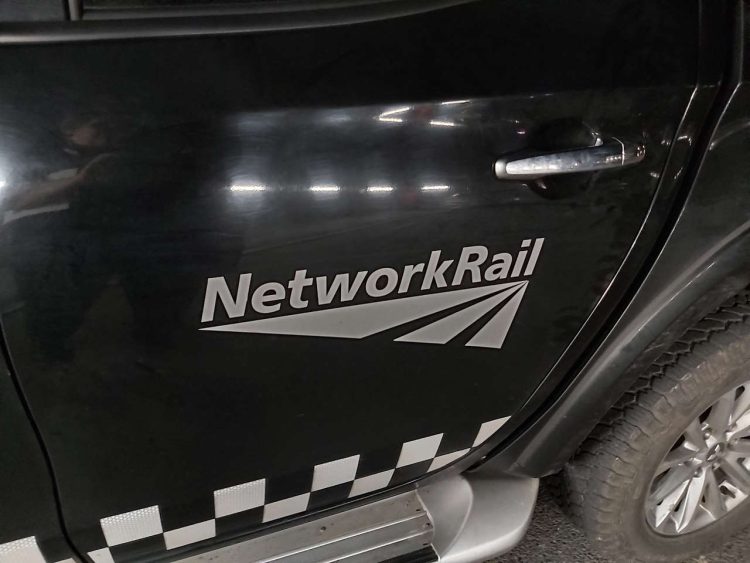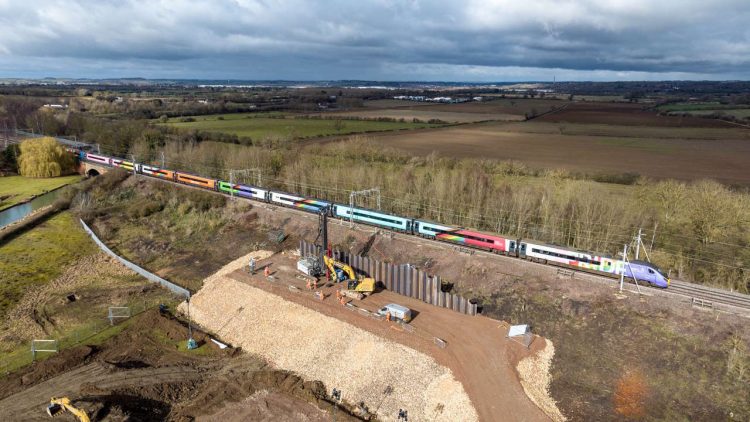Network Rail has published its plan for developing the railway in England and Wales over the next five years.#
During the next half-decade (2024-29, Control Period 7 – CP7), the company will invest £44 billion in improving train performance, tackling climate change, and what it describes as “investing in things that matter most to passengers and freight users”.
The government allocates funding to Network Rail’s funding over five-year periods, known as control periods. Control period 7 (CP7) starts on 1 April 2024 and runs until 2029.
In December the Department for Transport (DfT) published two key documents:
- High Level Output Statement – HLOS – which set out what the DfT wanted the railway to deliver
- Statement of Funds Available – SoFA – setting how much money it would make available to fund this.

Over the last two years, and especially over the past three months, Network Rail has been working on plans to maximise improvements to the railway within the constraint of the funds available. After adjusting for changes in electricity costs, the £44.1bn is £1.8bn more than in Control Period 6 (2019-2024). The CP7 funding package includes electricity costs for traction, which are passed straight to operators and which were £2.6bn in CP6 and will be £4.1bn for CP7.
This funding settlement no longer includes money for enhancing the railway, as capital projects are now funded separately on a case-by-case basis, but a further £96bn is available through the Integrated Rail Plan, much of which will be spent on enhancement work during the course of CP7.
As well as the the national overview, there are four more detailed, regional plans for England and Wales, and for national functions. Scotland’s Railway aligns the CP7 plans with Scottish Ministers’ HLOS and SoFA, which was published in early February 2023. We aim to publish the final Scotland CP7 SBP in Summer 2023.

Network Rail identifies the key features of its plan for England and Wales as:
- focusing on customers: by planning to deliver a more punctual and reliable railway and improving passenger and freight customer experience:
- recognising the need to improve performance over the rest of the current funding period (CP6) and giving passengers and freight users the best possible level of train performance in CP7 **
- renewing lifts and escalators, and improving lighting and passenger information systems to improve personal security and safety
- increasing investment more than twofold (to £1.6bn) in tackling climate change, and making the railway more sustainable and resilient, including: renewing earthworks and drainage; creating dedicated earthworks and drainage teams; operational weather expertise; climate change adaptation strategy investment; the Weather Risk Taskforce; reducing emissions; and implementing targeted net-zero initiatives which focus on meeting government objectives for biodiversity, air quality and waste.
- focusing on value for money and targeting efficiencies of £3.4bn
- supporting all who use the railway: by continuing to put passenger, public and workforce safety at the heart of our plans;
- investing in technology and innovation, for example installing equipment on trains which monitors infrastructure condition remotely
- investing £1.85bn in next-generation signalling that can improve reliability and train performance
- supporting economic growth and connectivity, including technology, research and development, and facilitating the introduction of major projects such as Transpennine Route Upgrade, preparing for HS2 and other targeted investment across the country
- supporting the growth of rail freight through what the company calls “an ambitious but realistic target” of 7.5% growth across the network
- laying the foundations for Great British Railways (GBR) that will be key to making the railway more efficient through reuniting ‘wheel and steel’: track and train.
Summaries of the national, and each region’s and function’s CP7 strategic business plan can be downloaded here.
One of the regional plans is for the North West and Central region, with the main priorities over CP7 being:
- improved train performance, including substantial investment to prevent delays caused by adverse weather and climate change, by upgrading to reduce the risk of tracks flooding, implementing projects to prevent landslips, and upgrading overhead power lines and track.
- a focus on sustainability, including introducing electric fleet vehicles and employing the latest carbon-saving technology across offices and maintenance depots.
- improving infrastructure to improve passengers’ experience and make the railway accessible for all, including major projects such as Transpennine Route Upgrade and preparing for HS2.

Tim Shoveller, Network Rail’s North West and Central region managing director, said: “Running a safe, green and efficient railway on the West Coast and Chiltern main lines along with the Midlands, North West and Cumbria is crucial to the country’s economic success which is why our plan for CP7 is ambitious, focussed on our passengers and customers and reflects the current complexities and challenges facing the industry.
“Yet it’s not only about running the railway we already have, but making sure it works in harmony with the construction of the new zero-carbon railway HS2 which continues at pace, and also East West Rail with services due to start running on Phase 2 by December 2024. This will no doubt be challenging, but when complete will transform Britain’s railway – and this funding from Government means the North West and Central region will continue to be a foundation stone of these new rail routes for the future.”
The Office of Rail and Road (ORR) will review Network Rail’s initial strategic business plan and consider how it measures up to the Government’s HLOS and SoFA documents. The ORR will publish its draft determination on this plan later in 2023, and will include targets, measures and incentives that it will require Network Rail to deliver over CP7.
Network Rail’s chief executive Andrew Haines said: “As we look to the next five years, the Government’s commitment to invest £44 billion in the operations, maintenance and renewal of England and Wales’s railway is a clear indication of the strong economic value rail brings to Britain.
“Our plan for CP7 is ambitious, focussed on our passengers and customers and reflects the current complexities and challenges facing the industry. There will no doubt be obstacles ahead and I look forward to working collaboratively with the sector to deliver this plan, reshape the industry and build a railway that is fit for the future.”





Responses
And continuing on electrifying the railways to make it lot greener including on some lines that are planned to be electrified.